View from the Foothills of France Some personal views on living, working,
bringing up family and making the dream happen in the most beautiful region of France. View from the Foothills of France also includes some personal and professional thoughts and tips on finding and buying the perfect property in the Ariège and Haute Garonne regions.
|
By nadia, on 26th October 2016 
- There are four tiers of school in France, Maternelle (nursery 4-6 years), Primaire (primary 6-11 years), College (secondary 11-15 years), Lycée (sixth form 15-18 years)
- The majority of children in France go to their local and usually closest primary and secondary school which are state funded and controlled
- Private education only really exists in terms of Catholic schools which are deemed ‘private’ but teachers are employed and paid by the state and fees are around €100 per term. There is also a very small network of high fee-paying private schools and international schools
- Formal schooling doesn’t start until six years of age in France but then the school day is long; 8am – 5pm although there is only morning school on Wednesdays
- There is no headmaster or headmistress as such in French schools; teachers are answerable directly to the regional education authority and a teacher is designated ‘director’ for administrative tasks each year. Secondary schools have a non-teaching, full-time director in charge
- Children do not wear school uniform in French schools
- French schools are strictly secular (unless designated Catholic and hence private) and no celebration of religious festivals is permitted
- French schools tend to put a great deal of emphasis on the core subjects of French and Maths with less time given to imaginative/creative subjects. There also tends to be a fair amount of learning by heart, especially in the case of poems and dictation
- Children often have to repeat a year during their school lives to ensure they have reach expected levels but there is no shame attached to this.
- Many children (often more than 50%) go home for lunch with their parents. Others eat in the school restaurant which is paid for by the family and is made up of a three course, balanced meal. Packed lunches do not really exist unless taken for a school outing
Like this:Like Loading...
By nadia, on 14th September 2016 
So far this Autumn, there continues to be signs of recovery in the housing market in France, with strong sales and prices moving upwards in many areas.
The impetus behind this recovery is probably down to a number of combining factors which include historically low interest rates and the weakness of the Euro against many other world currencies. In addition, while property prices are beginning to rise, property in France still offers incredibly good value for money along with, of course, the much envied quality of life inherent in the French lifestyle.
It is worth noting, however, that the overall upward movement in prices does not allow for a wide variety of regional market trends with prices in some departments and regions actually falling in the period, particularly in those areas where there have been the greatest price rises in the last few years such as Paris and the Languedoc.
The last two years have seen a large increase in the number of buyers from the UK. According to a joint survey by the Notaires of France, BNP Paribas and Rightmove, UK buyers accounted for 44% of all transactions in 2014 and 34% in 2015. The first half of 2016 has also seen a very buoyant property market and a strong representation of British buyers but the jury is still out on the market effects of Brexit and the accompanying uncertainty over the coming months and years.
In this region, it is the Ariège which has seen the greatest increase in prices, up 7.5% this year. The Haute Garonne has seen rises of 1.8% so far this year while the Gers has fallen 2.1%.
Like this:Like Loading...
By nadia, on 7th September 2016 
In this job, I am lucky enough to visit a huge number of very interesting and unusual properties. These can range from crumbling mountain barns to enormous Chateaux and pretty much everything in-between but this week was the first time that I have viewed a converted chapel which probably shows how unusual this property is. Even before the conversion, it’s history makes for an interesting building; it was apparently built by a local priest in 1858, using his own money, in memory of Queen and Sainte Radegonde who founded the Monastery of Sainte-Croix in Poitiers and spent time in this region selecting the famous marble which is found in this area. The chapel is on the edge of a historic village with Roman and Romanesque remains and, as with most religious buildings here in South West France, the priest clearly picked his spot carefully; it is set on a stunning promontory overlooking the village and valley below with beautiful views of the Pyrenees.

Apparently the chapel was primarily designed and used as a sanctuary and for religious celebrations. The last ceremony was in 1939 and, after that, it gradually fell into disrepair until rescued by the current owners. Over the last ten years, they have lovingly restored its exterior stone façade and landscaped the surrounding walled gardens, adding a pool that cleverly mirrors the shape of the building. Inside, sensitive to its important history and respecting the layout, the owners have inserted a modern home within the walls without impacting on the structure or overall feel of space and calm. Somehow they have managed to fit in four bedrooms and yet retain the height and create a very bright and comfortable interior.
I won’t go on or I will start to sound like an estate agent but I think this property will make someone a very special home or holiday house and it also strikes me as the perfect party house or retreat. In fact, with the current trend for Airbnb unusual style rentals, it would also make a fantastic investment especially as it is just five minutes from the mainline train station to Toulouse and to the coast and 40 minutes by car from central Toulouse and the international airport and an hour from the ski resorts.

This is the kind of property I probably won’t see the likes of again and it could well be sold by the time I post this article but, if you would like more information, please do get in touch, it’s well worth adding to your viewing short-list: nadia@foothillsoffrance.com
Like this:Like Loading...
By nadia, on 5th August 2016 
The more I hear from friends and clients about the trials and tribulations of trying to buy and sell property in the UK and other countries around the world, the more I appreciate how regulated, fair and relatively un-stressful the French system is. In France, a vendor pays for the basic tests to be carried out on a property before it is officially put on the market. These include tests for electrics, gas, asbestos, woodworm, termites and natural risks such as flooding and earthquakes. These are done so that both parties are aware of any work required to bring the property in line with current regulations, not for the seller to have to make these good, purely so that the buyer knows the situation with the property before they make an offer so there are no nasty or unexpected surprises.
The process is then very straight-forward; an offer is made and a deal is agreed, the contract (Compromis de Vente) is drawn up by the Notaire (or Notaires), each party signs, the buyer puts down a deposit and only then does the Notaire begin the searches and proceed with all the expensive legal work. There is no such thing really as gazundering and gazumping and almost the only reason a sale might fall through would be if the buyer failed to secure a mortgage in which case, there would be a ‘clause suspensive’ allowing them to pull out without penalty. There could be various other clauses, agreed by both parties at the signing of the Compromis but, other than these, the sale will go through.
Hence the French system is not defined by the stress which seems to be inherent in so many other property markets in the world and, most particularly in that of the home-buying process in England. In France, you can be very confident that once your offer has been accepted, your finance is in place and the Compromis de Vente is signed, you will be able to move into your dream home in around three months. There may be many other uncertainties around buying property in France right now but certainly the actual buying process is not one of them.
Like this:Like Loading...
|
For further information please contact us:
|
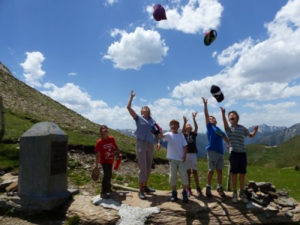
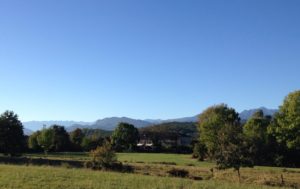
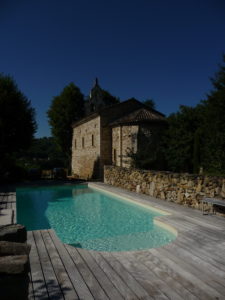
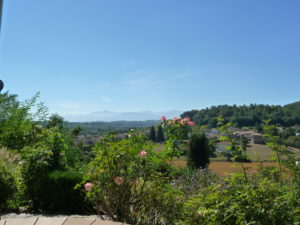
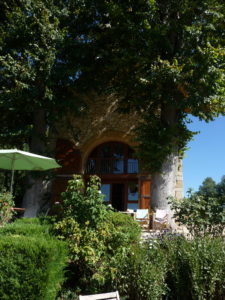
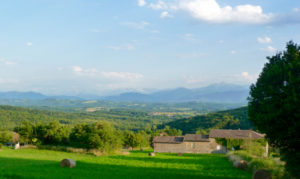





You must be logged in to post a comment.